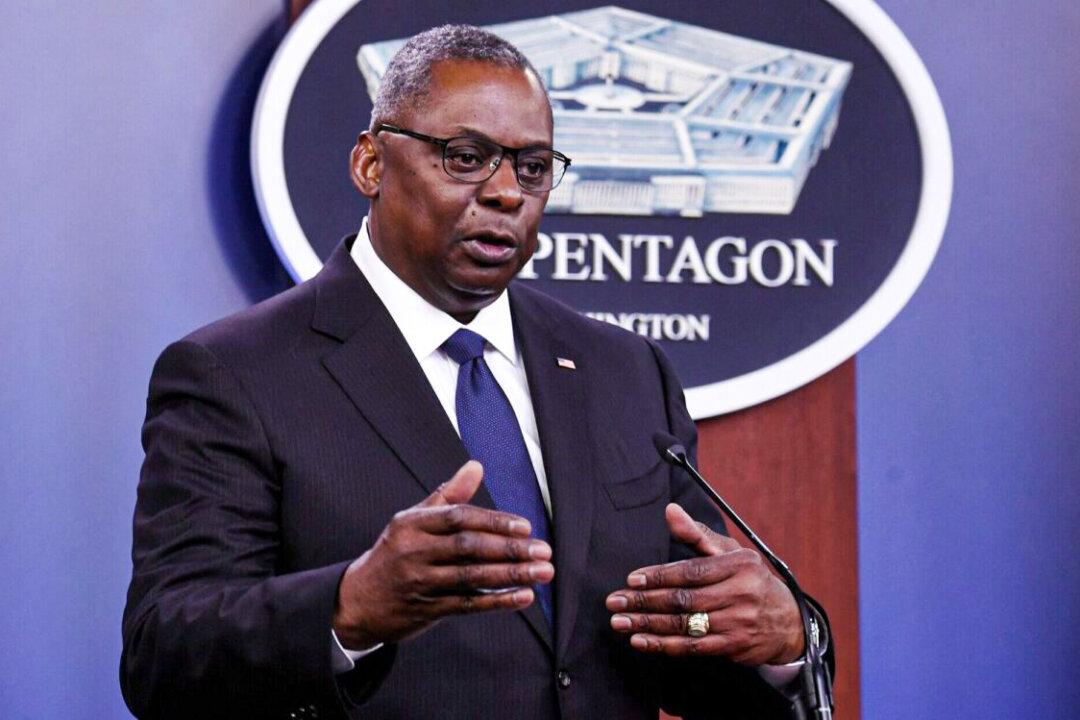U.S. Secretary of Defense Lloyd Austin warned on Dec. 4 that the Chinese regime’s repeated military air activities near Taiwan appear to be a “rehearsal” for future military operations against the self-ruled island.
Austin issued the warning while speaking at the Reagan National Defense Forum in California. He made the comment about Taiwan while addressing the overall challenges posed by the “emergence of an increasingly assertive and autocratic China.”





